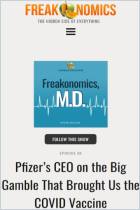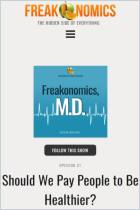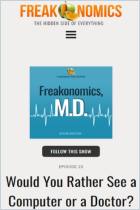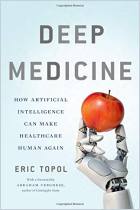American ER doctors typically work 10-hour shifts, and during a normal shift they might see up to 30 patients. They have to take a medical history for each of those patients, order the right tests and follow the clues to make a diagnosis for each one. Then they have to come up with an appropriate treatment. These doctors are operating under a tremendous burden of “decision density,” meaning that they have to make a disproportionately large number of important decisions every hour. Given the circumstances, it’s a wonder they diagnose people correctly as often as they do. This episode of Freakonomics, MD explores the role that algorithms could play in medicine.
Artificial intelligence can help doctors with their two most essential tasks: making a correct diagnosis and choosing the best treatment.
Under current conditions, doctors choose the wrong diagnosis about 10% of the time. This is impressive, considering what they’re up against, but if you’re the one out of 10 who gets the wrong diagnosis, the consequences could be considerable. And like any human, doctors make even more mistakes when they’re operating under stressful conditions.
Artificial intelligence (AI) could improve the diagnostic process, because at its base, AI is about pattern recognition on a large scale. AI is basically “extracting information from huge troves of data and predicting things we may care about using sophisticated algorithms.” If you feed AI the massive data sets from electronic health records, AI can help predict what might happen to an individual patient.
Predicting heart attacks is difficult, invasive and expensive. Early research suggests that AI can make heart attack prediction easier, less expensive and more accurate.
Emergency room doctor and UC Berkeley professor Ziad Obermeyer and...
Freakonomics, MD is part of the Freakonomics radio network. It’s hosted by Dr. Bapu Jena, a Harvard physician and economist.





















Comment on this summary or Comenzar discusión